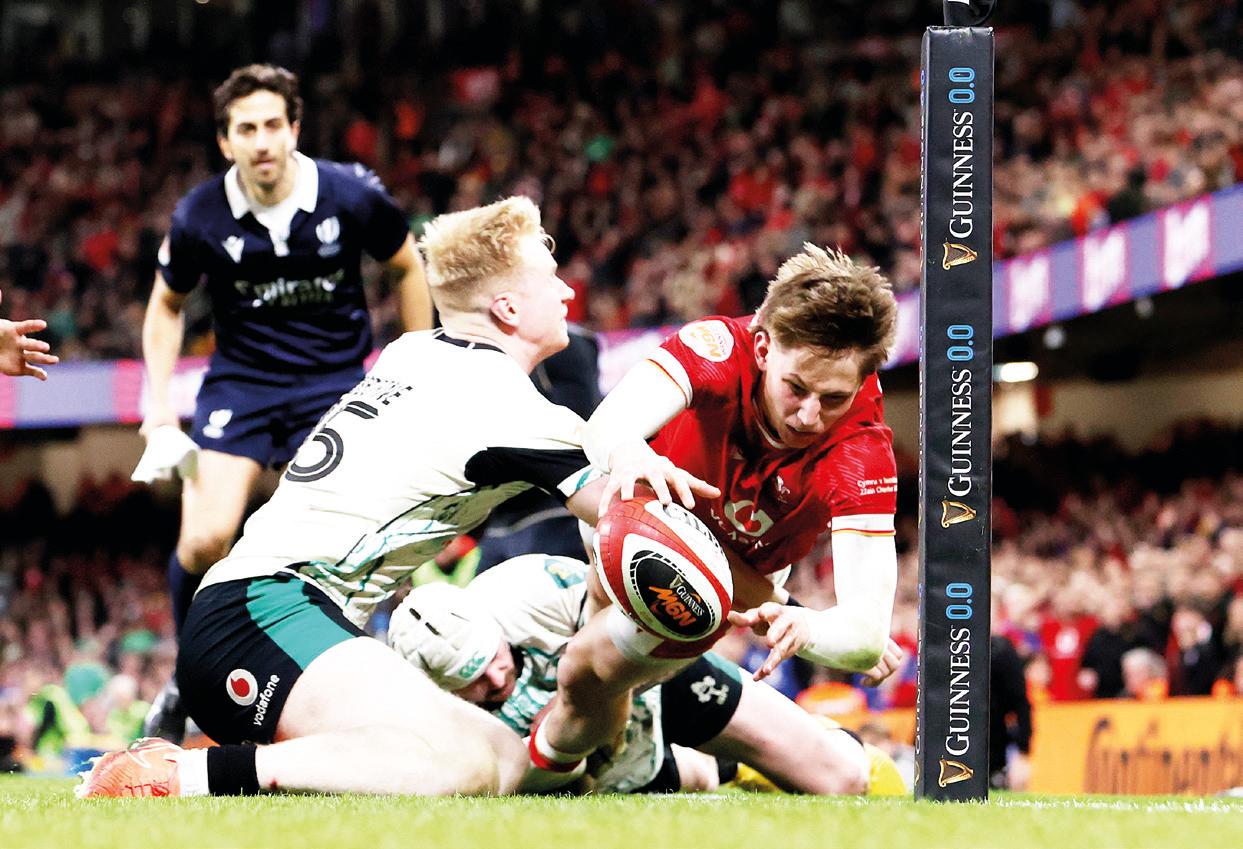Had they found one, it would have shot right up there on the Richter scale of tremors alongside the Buster Douglas uppercut which separated Mike Tyson from his undisputed world heavyweight title at the Tokyo Dome more than 30 years ago.
Ireland found a more prosaic way of avoiding a not dissimilar fate, clinging on to their title via a hattrick of Sam Prendergast penalties but not before Wales had them rocking and rolling all over the place either side of half-time. Never before can a Welsh team have lost at home and won so much.
In the manner of true champions, Ireland recovered to collect the Triple Crown, their third in five years, due reward for regaining their composure. Wales regained something infinitely more precious to their squad and the nation at large than any pot of gold or silver: their self-respect.
The losing run is still to be broken but this defeat, unlike any of the previous 14, felt like a victory of sorts.
Unlike Scotland at Murrayfield a fortnight earlier, Wales did not fall to pieces at conceding an early Irish try which only a man with as telescopic a right arm as Jack Conan could have scored.
Far from allowing their mental fortitude to disintegrate, Wales had the nerve to win penalties from the first three scrums, two on Ireland’s put-in. It may have taken them 20 minutes to get as far as the Irish 22 but once there they created more, far more, in the next 20 than against France and Italy put together.
As the crowd began to sense they might be witnessing something special, the sight of Welsh wings in full cry, Blair Murray’s mercurial runs from deep and the excellence of the back row kept the fans roaring and the bookmakers nervous.
They would have been all the more so but for a decision off the field which did more to safeguard odds of 25-1 against a home win than any decision on it. In the 34th minute Garry Ringrose’s head-first tackle on Ben Thomas bore all the hallmarks of a straight red.
It was accidental, of course, but intent, or the lack of it, is irrelevant when it comes to enforcing the law. Had World Rugby left well alone and the same red card rule been applied as last season, Ringrose’s yellow would, in all probability, have been upgraded from yellow to a permanent red.
The enforcement of the watered down alternative, a 20-minute red, inevitably encourages referees to refer such incidents to the bunker. England’s Christophe Ridley, impressive throughout in his unflustered, dispassionate control, duly did so.
image [https://cdn.magzter.com/1351005036/1740279289/articles/_NcROVY6g1740292331368/8087022421.jpg]
The verdict, a 20-minute red, not a rest-of-the-game red, would have left those viewers with a casual interest in the sport asking a rhetorical question: ‘When is a red card not a red card?’ Crucially, it let Ireland off the hook. By the time they were back to full strength, the holders’ grasp of their title had been shaken by one Welsh try at the end of the first half and another at the start of the second, a thing of beauty from the acrobatic Tom Rogers.
The storm which had been howling around them began to abate with the appearance of a midfield rock by the name of Bundee Aki. By then Wales had been re-born, their performance confirming the belief that ...


